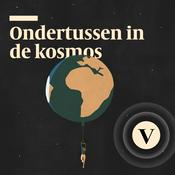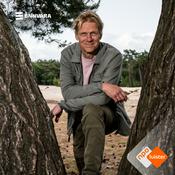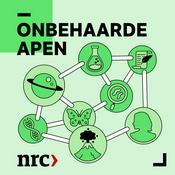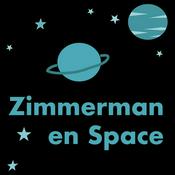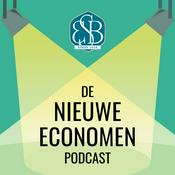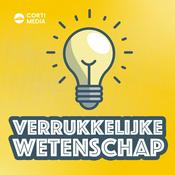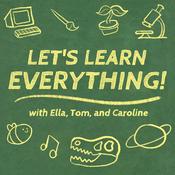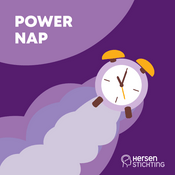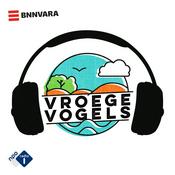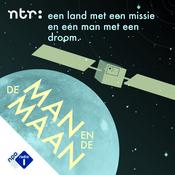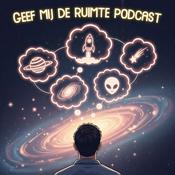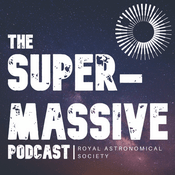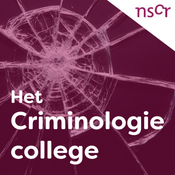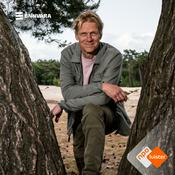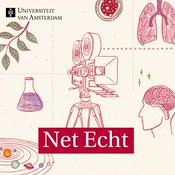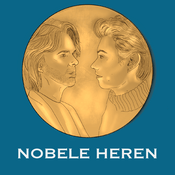18 afleveringen
- What if a childhood game could unlock the mysteries of quantum mechanics? In this episode, we sit down with Assistant Professor Evert van Nieuwenburg to explore how Tiq Taq Toe is revolutionizing the way we learn physics. Through interactive gameplay, this innovative tool makes abstract quantum concepts more intuitive and engaging.
Whether you're a science enthusiast or just curious about learning through play, this episode offers a fascinating glimpse into a whole new way of thinking. Tune in and discover how simple moves can reveal the wonders of a complex universe.
Idea by Dimitra Kouimtzidou
Research, planning & coordination by Marcel Tichelaar & Dimitra Kouimtzidou
Interview, production & editing by Michiel van Poelgeest - Can AI revolutionize elderly care? Professor Marco Spruit, an expert in translational data science, is developing Well-being AI—a smart pet robot that provides companionship while monitoring health through language markers. This technology could ease pressure on healthcare services by detecting early signs of decline and alerting caregivers.
Beyond professional care, these intelligent robots could also support informal caregivers. Imagine a situation where one partner begins to suffer from dementia—this technology would allow the other partner to remotely monitor their well-being, offering peace of mind and timely intervention. This way AI can be the key to a more sustainable and compassionate future for elderly care?
Idea by Dimitra Kouimtzidou
Research, planning & coordination by Marcel Tichelaar & Dimitra Kouimtzidou
Interview, production & editing by Michiel van Poelgeest Anna Kononova: Lenses for chip manufacturing, unveiling the complexity of their design
08-4-2025 | 22 Min.How can nature-inspired evolution help us create the perfect optical lens? Assistant Professor Anna Kononova explores this question in her research. High-tech industries, like computer chip manufacturers, require ultra-precise lenses to keep up with the demand for increasingly complex designs.
Anna uses evolutionary computing, a technique that mimics natural selection. Just as nature evolves the fittest species, computers generate and test many lens designs, keeping the best and refining them over generations. This approach helps create cutting-edge technology with incredible precision.
Idea by Dimitra Kouimtzidou
Research, planning & coordination by Marcel Tichelaar & Dimitra Kouimtzidou
Interview, production & editing by Michiel van Poelgeest- Ever wondered how algorithms make sense of complex problems? In this episode, we dive deep into the art of designing algorithms with associate professor Mitra Baratchi. Exploring how computers process data, find connections, and deliver insights.
While algorithms can solve many challenges, there are limits to their accuracy. How can researchers identify these gaps and guide users toward the best solutions. How much should we rely on algorithms, and where does human expertise come in?
Idea by Dimitra Kouimtzidou
Research, planning & coordination by Marcel Tichelaar & Dimitra Kouimtzidou
Interview, production & editing by Michiel van Poelgeest - How and why do humans form relationships with AI? This question lies at the core of Assistant Professor Peter van der Putten’s research. While AI sparks fear—raising concerns about its impact on our place in the universe—it also fascinates us, offering glimpses into an unknown future.
But can we truly bond with AI? It’s one thing to feel attached to a humanoid robot or a robotic pet, but what about a simple wooden cube with a moving face? In his study Common Locus, Peter explored just that. The results might surprise you—and reveal more about human nature than you’d expect.
If you want to read more about the research project of Joost Mollen, Peter van der Putten, and Kate Darling: Bonding with a Couchsurfing Robot: The Impact of Common Locus on Human-Robot Bonding In-the-wild. ACM Transactions on Human-Robot Interaction. 12, 1, Article 8, March 2023.
More information about Peter can be found here: https://liacs.leidenuniv.nl/~puttenpwhvander/
Idea by Dimitra Kouimtzidou
Research, planning & coordination by Marcel Tichelaar & Dimitra Kouimtzidou
Interview, production & editing by Michiel van Poelgeest
Meer Wetenschap podcasts
Trending Wetenschap -podcasts
Over Computers Don't Byte
Computer scientists who are at the forefront of their respected fields attempt to explain what on earth they're doing.Computers don't byte is a series by the Leiden Institute of Advanced Computer Science (LIACS). Leading computer scientists from a variety of fields share their expertise and insights. Dive into the minds of these researchers and learn about real-world applications, the future of AI and related technologies and cutting-edge research. From chatbots to cybersecurity, from quantum to children's stories, each episode offers its own perspective on the changing landscape of computer science. Whether you're a seasoned professional or an aspiring enthusiast, this podcast offers knowledge and inspiration.Content: LIACSHost: Michiel van PoelgeestProduced by: Studio Onzichtbaar
Podcast websiteLuister naar Computers Don't Byte, We zijn toch niet gek? en vele andere podcasts van over de hele wereld met de radio.net-app
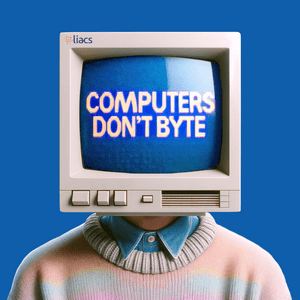
Ontvang de gratis radio.net app
- Zenders en podcasts om te bookmarken
- Streamen via Wi-Fi of Bluetooth
- Ondersteunt Carplay & Android Auto
- Veel andere app-functies
Ontvang de gratis radio.net app
- Zenders en podcasts om te bookmarken
- Streamen via Wi-Fi of Bluetooth
- Ondersteunt Carplay & Android Auto
- Veel andere app-functies


Computers Don't Byte
Scan de code,
download de app,
luisteren.
download de app,
luisteren.



